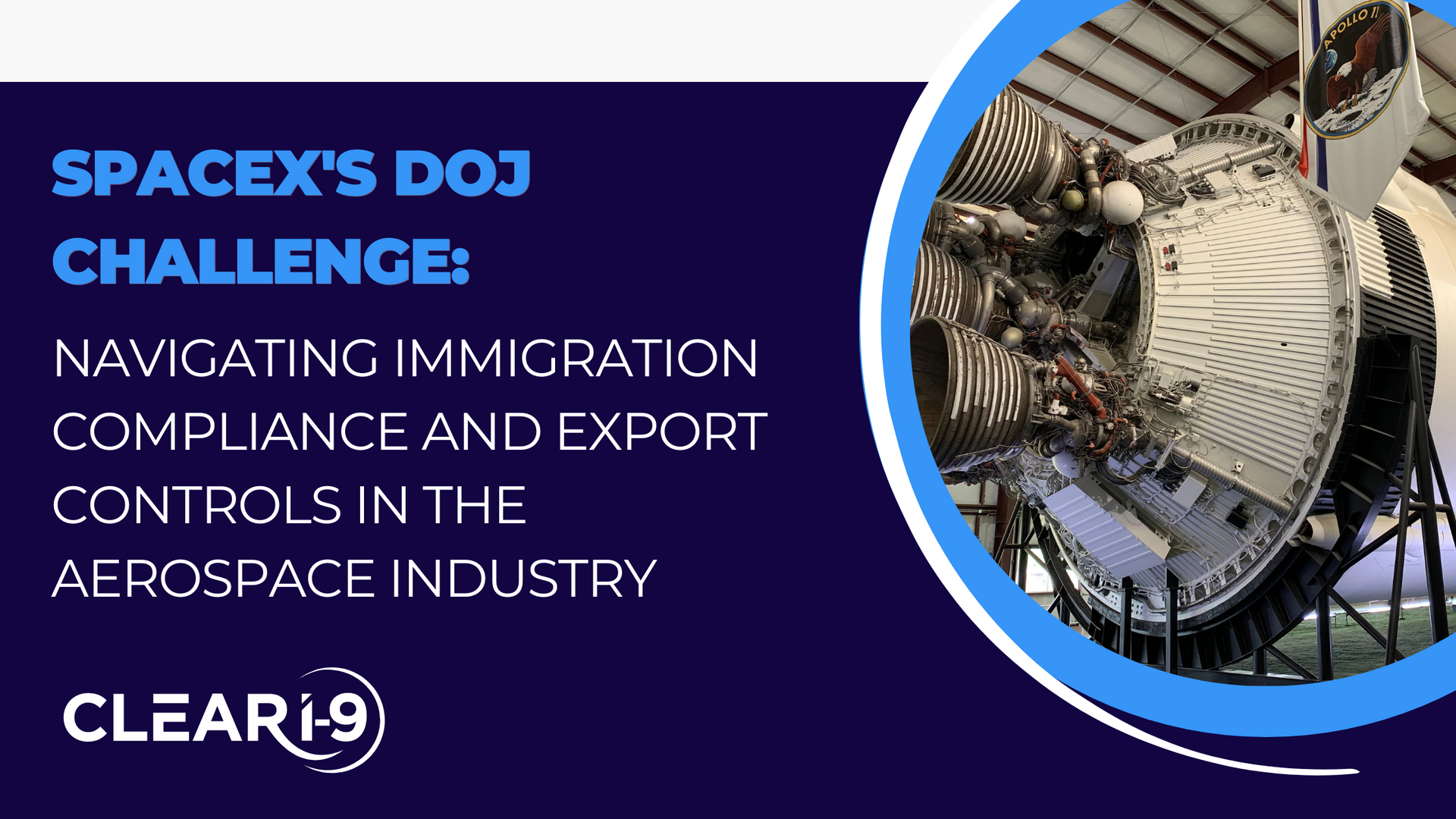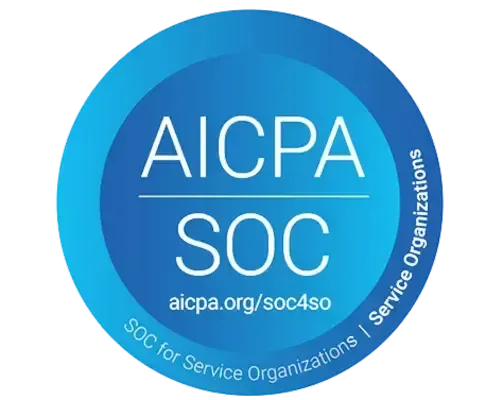SpaceX's DOJ Challenge: Navigating Immigration Compliance and Export Controls in the Aerospace Industry
September 12, 2023

Space Exploration Technologies Corporation, commonly known as SpaceX, is a pioneering force in the aerospace industry. However, recent developments have brought the company under the scrutiny of the
U.S. Department of Justice (DOJ) due to allegations of discriminatory hiring practices related to export control laws. For companies large and small, navigating the complex intersection of immigration laws and export control regulations is no simple task. Let's dive into the details of the DOJ's complaint against SpaceX and explore the implications for employers.
The DOJ's Allegations Against SpaceX
On August 23, the DOJ filed a 13-page complaint against SpaceX, alleging that the company violated the Immigration and Nationality Act (INA) through its hiring practices. This complaint is centered around allegations that SpaceX has been in violation of the Immigration and Nationality Act (INA) through its hiring practices. The INA is a federal law that governs immigration and nationality matters in the United States, and it includes provisions related to non-discrimination in employment based on immigration status.
Specifically, the DOJ claims that SpaceX:
- Discriminates against asylees and refugees during recruitment, screening, and selection processes. The I-9 form is typically used during the recruitment and hiring process to ensure that all prospective employees, including asylees and refugees, are eligible to work in the United States. Employers are required to verify the identity and employment authorization of their employees by completing I-9 form. If the allegations suggest that SpaceX discriminated against asylees and refugees during these processes, it may involve mishandling or improperly documenting the Form I-9, leading to discriminatory practices.
- Incorrectly informs asylees and refugees that SpaceX can only hire U.S. citizens and lawful permanent residents, discouraging them from applying.
- Fails to fairly consider asylees and refugees who apply for positions and has refused to hire them based on their citizenship status.
The DOJ further notes that from September 2018 to September 2020, SpaceX exclusively hired U.S. citizens and lawful permanent residents, a practice it deems "routine, widespread, and longstanding." Importantly, these allegations encompass a wide range of positions within the company, from welders and cooks to crane operators and baristas.
Balancing Export Control Compliance and Employment Practices: SpaceX Case Takeaways
The SpaceX case brings to the forefront an ongoing challenge faced by many organizations: effectively managing the nuanced relationship between export control requirements and employment practices. As employers, it's crucial to strike a delicate balance that ensures compliance with both U.S. export controls and anti-discrimination provisions of the INA. Let's explore some key takeaways from this case:
- Avoid Conflation: One fundamental lesson is to keep export control assessments separate from the Form I-9 process. These two aspects of compliance serve distinct purposes, and combining them can lead to confusion and, as illustrated by SpaceX, potential discrimination issues.
- Clarify U.S. Person Status: When discussing export control requirements with job candidates, it's vital to communicate that "U.S. persons" encompass more than just U.S. citizens. This approach dispels misconceptions and encourages a more inclusive applicant pool.
- Prevent Limitations: The ITAR and EAR should never be wielded as reasons to restrict job opportunities based on citizenship, immigration status, or national origin. Doing so not only goes against anti-discrimination principles but can also result in legal repercussions.
- Proper Training is Foundational to Proper Compliance: Those involved in hiring and onboarding processes must receive comprehensive training to prevent discrimination rooted in citizenship, immigration status, or national origin. Awareness is the first step toward equitable practices.
- Tailored Assessments: Export licensing assessments should only be conducted for positions that necessitate work with export-controlled items. Overreaching assessments can cause unnecessary complexity and potential legal complications.
- Equal Treatment: All candidates vying for roles requiring interaction with export-controlled items should undergo export licensing assessments, regardless of suspicions about their non-U.S. person status. Transparent communication about the assessment's purpose is essential.
Striking the Balance: Immigration Compliance and Employment Practices
The SpaceX case serves as a potent reminder of the multifaceted nature of compliance at the crossroads of immigration and export control. Employers must remain vigilant, adopting best practices that promote fairness, transparency, and adherence to the law. Balancing these considerations not only safeguards organizations from legal ramifications but also fosters an environment of inclusivity and opportunity for all.
Balancing Compliance: Lessons from SpaceX's DOJ Challenge and Clear I-9's Solution
SpaceX's recent legal challenge by the U.S. Department of Justice sheds light on the intricate web of immigration compliance and export control regulations within the aerospace industry. This case underscores the importance of maintaining a careful equilibrium between these two crucial aspects of corporate responsibility. Employers must diligently navigate these complex legal landscapes to avoid the pitfalls exemplified by SpaceX's alleged discriminatory hiring practices.
Furthermore, as highlighted, it is essential for organizations to manage and securely store their Form I-9s to fulfill immigration compliance requirements. Clear I-9, offers a comprehensive solution for error-free I-9 management. With real-time tracking, a customizable dashboard, and robust reporting capabilities, Clear I-9 simplifies the task of maintaining and accessing these essential documents. This not only aids in compliance but also upholds the highest standards of security and privacy, ensuring that organizations can focus on fostering inclusive and equitable workplaces while mitigating legal risks. In this ever-evolving regulatory landscape, SpaceX's case serves as a valuable lesson for companies of all sizes, emphasizing the importance of vigilance and best practices in the pursuit of fairness, transparency, and adherence to the law.

Learn More About Clear I-9
Contact Us
Thanks for contacting us. We'll get right back to you!
Oops, there was an error sending your message. Please try again later.






